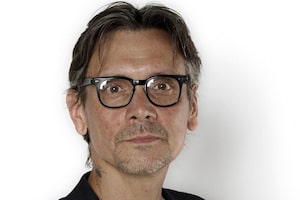For his first feature film, Parkland, journalist-turned-filmmaker Peter Landesman returns to one of the most heavily trampled few hundred square yards in American history: Dealey Plaza in Dallas, on Nov. 22, 1963. It's a fair question to wonder why he's done so. After all, the assassination of John F. Kennedy has attained the status of national myth through countless books, documentaries and, yes, feature films – Executive Action, Love Field, Ruby and, most notoriously, JFK.
Parkland's professed reason for depicting the impact and aftermath of the assassination on just about everybody who was near what happened that day – doctors, nurses, Secret Service agents, police, Lee Harvey Oswald's family, and the man who gave the Zapruder film its name – is to shift the focus away from the endlessly rehashed allegations of shadowy foul play. Instead, Landesman is determined to place it squarely on the emotional impact felt by those peripheral players.
But although it's true that this is the first time those tales have been told in such close cinematic proximity to each other, and with such a solemn commitment to wrenching their maximum emotional mileage, it's also true that many of these narratives have already made lots of appearances: in documentaries such as The Men Who Killed Kennedy and The Day the Dream Died; and in literally hundreds of books – perhaps most notably, Vincent Bugliosi's 1,632-page Reclaiming History: The Assassination of President John F. Kennedy.
Moreover, Parkland's assumption that it's dealing with revelatory material overlooks the fact that the cultural impact of the Kennedy assassination was not so much direct as collateral. References to it had already started popping up in movies like 1966's The Chase and spaghetti westerns like 1969's The Price of Power. By the seventies, the assassination's shadow of conspiracy was permeating dozens of movies, from The Parallax View and The Conversation to Nashville and Taxi Driver. Dealey Plaza has also figured prominently in literary fiction: Think Don Delillo's Libra and Stephen King's 11/22/63.
Adopting a style that favours shaky-cam immediacy and urgently cross-cut action scenes, all overlaid with a score by James Newton Howard (The Hunger Games, The Bourne Legacy) that literally beats the drums of historical solemnity, Parkland plays out as a kind of ensemble disaster movie. It does so right down to the extended cameos from its all-star cast: Zac Efron as the young doctor on point at Parkland Memorial Hospital, James Badge Dale as Oswald's stricken brother Robert, Billy Bob Thornton as a Secret Service agent, and Paul Giamatti as the world's most reluctantly famous home-movie maker.
In tone and structure, Parkland most resembles Emilio Estevez's Bobby, another retelling of a famous Kennedy's killing from the point of view of the shattered bystanders. In both movies, the rear-projected weight of historical significance works against in-the-moment spontaneity: No matter how deft or vivid the performances (and in Parkland, Giamatti's Zapruder is especially lively), everyone is cast in the role of chorus to a national tragedy. They cry, scream, rage and declaim accordingly.
All of Landesman's cast get a spot-lit moment where they speak to the big picture of what's just happened, and the cumulative effect of all this portentousness is precisely the opposite of what would seem to be intended. When you're told this often by a movie how you're supposed to be feeling, the movie tends to do the feeling for you. Your own emotions are incidental to a drama that's already made its mind up concerning the proper response.
While, in interviews, Landesman has made much of his intent to restore to the assassination its horror on its own terms – uncompromised by conspiracy scenarios – it's revealing that, in its amped-up tone of relentless melodrama, the other Kennedy movie that Parkland most resembles is none other than Oliver Stone's JFK, a film that tilted just as woozily toward conspiratorial certainty as Landesman's tilts away.
Parkland's strenuous refusal to even hint at an alternative narrative to the Oswald-acted-alone one – and boy, in this movie, he looks not only guilty but really, really sorry – makes it feel as determinedly selective in its way as Stone's exercise in gavel-pounding paranoia. When it comes to the recreation of what "really" happened in Dallas that day, the fact of suspected conspiracy is as much a part of the story as the President's death itself. Almost from the instant that gunshots echoed off the buildings, and certainly as soon as Zapruder's 8 mm film was developed, people started asking questions about what "really" happened.
And that's part of the story. Not because there really was a conspiracy that will ever be definitively proven. (And don't forget Michael Corleone's line from The Godfather Part II, uttered in response to a suggestion that a certain hit would be like trying to kill the president: "If history has taught us anything, it's that you can kill anyone.") But because the spectre of conspiracy appeared so quickly, and lingered so persistently – it is essential to the story. Not the whole truth perhaps, for no single account can ever provide that, but the whole story.
The sheer speed and momentum with which suspicions were raised concerning the lone-gunman scenario in the JFK assassination is itself a revealing part of the historical record. For reasons that reveal much of the shifting temper of the times then and since, much of America needed to believe something else had happened than what they'd been told. That, too, is an enormous fact of history, and an essential collateral effect of what transpired that day 50 years ago in Dealey Plaza.
 Geoff Pevere
Geoff Pevere